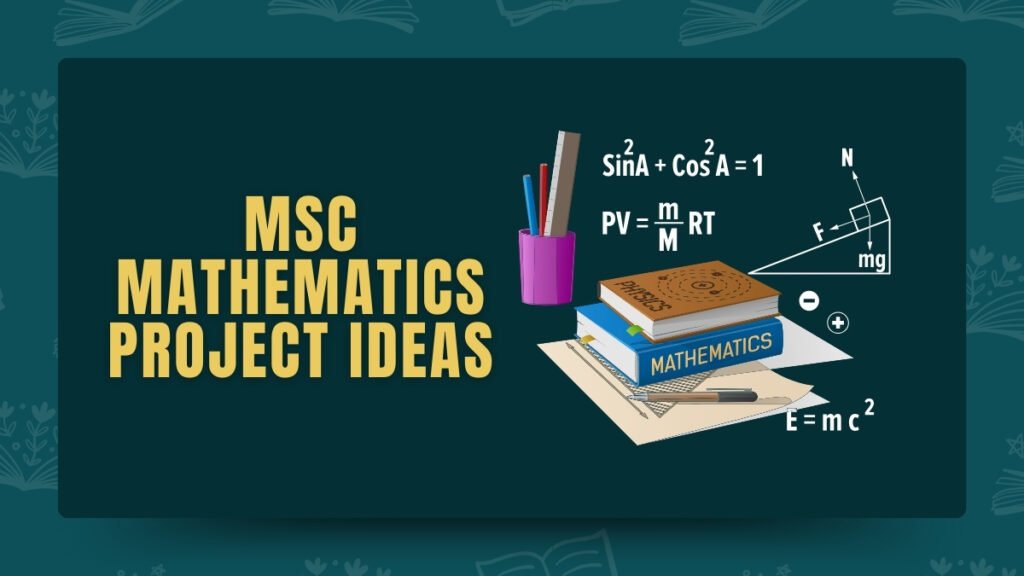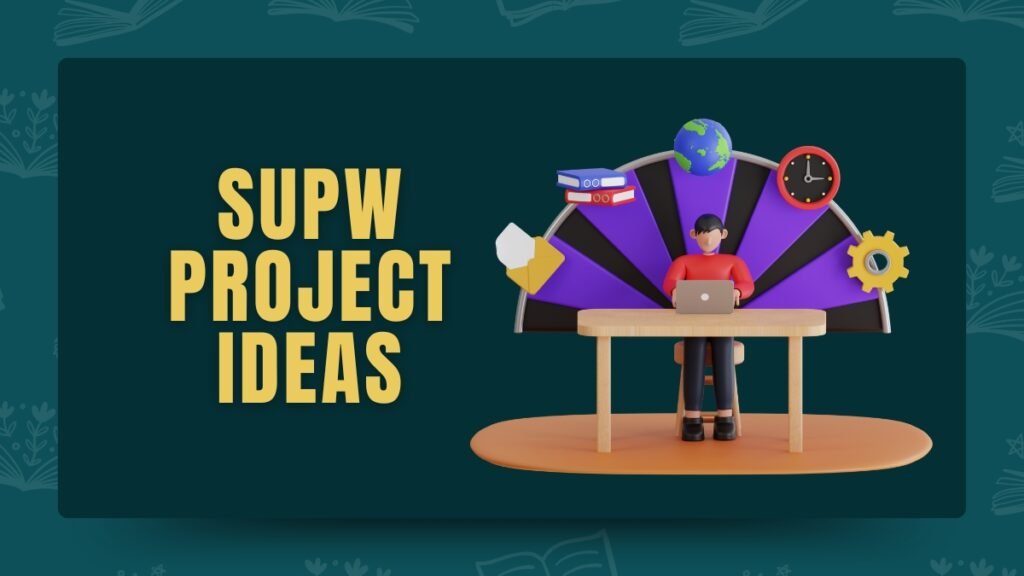Looking for easy science fair project ideas for 6th grade? Check out fun experiments in space, plants, animals, and chemistry that are perfect for your next science fair!
Are you excited for your science fair? Picking the right project is the first step to doing great! Whether you like experimenting with cool science ideas, building models, or learning about nature, there are lots of fun projects to choose from.
You can test how to grow plants better or learn how simple machines work. In this guide, we’ll share easy and fun project ideas that will help you get started and show off your creativity!
Science Fair Project Ideas for 6th Grade PDF
Importance of Science Fair Projects
Science fair projects are a fun way to learn. They help you:
- Learn new things: Discover how stuff works.
- Solve problems: Find answers to questions.
- Be creative: Think of your own ideas.
- Do research: Find helpful information.
- Build confidence: Get better at sharing your work.
Overall, science fair projects help you learn and have fun!
Choosing the Right Science Fair Project
Choosing a science fair project can be fun! Here’s how to pick a good one:
- Pick something you like. It’s more fun if you care about the topic.
- Keep It Easy: Pick a project that’s simple and not too hard.
- Use What You Have: Think about materials you can easily get or already have.
- Ask Questions: Find something you want to learn more about.
- Do an Experiment: Pick a project that lets you try things out and see results.
These tips will help you find a fun and easy project!
Science Fair Project Ideas for 6th Grade
Here are some science fair project ideas for 6th grade:
Plants
- Grow seeds and measure how tall they grow.
- Test how plants react to light.
- Study how water affects plant growth.
- Learn how plants grow in different soils.
- Test how plants respond to sound.
- Observe how plants change with the seasons.
- Compare how plants grow in the sun vs. the shade.
- Study how plants get nutrients from the soil.
- Test if plants need fertilizer to grow.
- Learn how plants help the environment.
Space
- Learn how stars are made.
- Build a simple model of the solar system.
- Study the phases of the moon.
- Observe how planets move around the sun.
- Learn how astronauts live in space.
- Study the effects of gravity.
- Test how objects float in space.
- Build a model of a rocket.
- Learn about black holes and their effect on space.
- Study how comets travel through space.
Weather
- Learn how to make a rain gauge.
- Study how clouds are formed.
- Observe how weather changes with the seasons.
- Test how temperature affects wind.
- Learn how storms are made.
- Build a simple weather vane to measure wind.
- Study how tornadoes form.
- Compare temperatures on different days.
- Observe how weather patterns affect plants.
- Learn about the water cycle.
Earth
- Study the layers of the Earth.
- Learn how earthquakes happen.
- Build a volcano model and watch it erupt.
- Observe how rocks change over time.
- Study how fossils are formed.
- Learn about the different types of soil.
- Test how erosion affects the land.
- Study the impact of pollution on the Earth.
- Learn about natural resources and how we use them.
- Observe how weathering affects rocks.
Human Body
- Study how the heart pumps blood.
- Learn how muscles work.
- Observe how bones help you move.
- Test how your senses work.
- Learn how the digestive system works.
- Study how breathing helps the body.
- Test how the brain controls the body.
- Learn how the circulatory system works.
- Observe how the immune system fights sickness.
- Study how your skin helps protect your body.
Energy
- Learn how solar power works.
- Study how wind turbines make energy.
- Build a simple solar oven.
- Learn how water is used to make energy.
- Compare the energy of different light bulbs.
- Study how batteries store energy.
- Test how heat affects energy use in homes.
- Learn how electricity is made.
- Study how heat travels through materials.
- Compare energy use in different devices.
Chemistry
- Test how acids and bases react.
- Mix different liquids and see what happens.
- Study how substances dissolve in water.
- Learn how baking soda and vinegar react.
- Test how rust forms on metal.
- Study how different materials burn.
- Test how temperature affects chemical reactions.
- Study the role of catalysts in reactions.
- Observe how water changes state.
- Study how chemicals mix in everyday products.
Physics
- Learn how friction affects motion.
- Study how gravity pulls objects down.
- Test how different materials absorb sound.
- Study how objects float in water.
- Build a simple pulley system.
- Study how light bends in water.
- Learn about the speed of moving objects.
- Study how magnets attract objects.
- Observe how heat makes things expand.
- Test how sound travels through different materials.
Technology
- Learn how computers process information.
- Study how robots are made and work.
- Test how different materials affect Wi-Fi signals.
- Build a simple circuit.
- Study how different gadgets work.
- Learn how video games are created.
- Test how sound can be recorded.
- Study how the internet connects people.
- Learn about how technology is used in medicine.
- Build a simple machine to perform a task.
Math
- Study how fractions work.
- Learn how to measure angles.
- Test how addition and subtraction are related.
- Study different ways to count objects.
- Learn about symmetry in shapes.
- Study how to read graphs and charts.
- Learn about probability and chance.
- Study how to use a ruler to measure.
- Test how multiplication works with real-life examples.
- Learn how to make simple patterns.
Nutrition
- Compare the nutritional value of fruits.
- Learn how sugar affects energy.
- Test how different diets affect health.
- Study how vitamins help the body.
- Test how food affects your concentration.
- Learn about how hydration helps performance.
- Study how protein helps muscles.
- Compare the effects of healthy vs. junk food.
- Test how fiber helps digestion.
- Study the importance of eating balanced meals.
Robotics
- Build a simple robot.
- Learn how robots move.
- Test how robots can follow lines.
- Build a robot arm to move things.
- Learn how robots help in space.
- Study how robots are used in factories.
- Test how robots react to light.
- Build a robot to draw pictures.
- Study how robots can be controlled remotely.
- Learn how robots are programmed.
Genetics
- Study how eye color is inherited.
- Test how traits are passed down in plants.
- Learn how genes affect growth.
- Study how traits are passed from parents to children.
- Observe how plant height is affected by genes.
- Study how traits like coat color work in animals.
- Learn about DNA and its role in genetics.
- Observe how selective breeding works.
- Test how genes affect speed in animals.
- Study how mutations happen in living things.
Psychology
- Study how stress affects learning.
- Learn how colors can change moods.
- Test how sleep affects memory.
- Study how distractions affect focus.
- Observe how people react to emotions.
- Test how rewards influence behavior.
- Study how peer pressure affects decisions.
- Learn how environment affects concentration.
- Study how habits form.
- Test how personality affects choices.
Animal Behavior
- Study how animals communicate.
- Observe how pets behave in different places.
- Learn how birds migrate.
- Study how animals learn from rewards.
- Observe how animals defend their territory.
- Study how pets react to their owners.
- Learn how animals adapt to the dark.
- Study how animals use camouflage.
- Watch how animals find food.
- Learn how animals change to fit new homes.
Microbiology
- Study how bacteria grow.
- Learn how mold grows on food.
- Test how soap kills germs.
- Study how viruses spread.
- Test how temperature affects bacteria.
- Study how bacteria help digestion.
- Learn how antibiotics fight infections.
- Observe how fungi grow on surfaces.
- Study how germs spread in public places.
- Learn about the role of bacteria in the environment.
Genetic Engineering
- Learn how genes are changed in plants.
- Study how genetically modified foods grow.
- Test how genetic engineering helps plants resist pests.
- Learn about the process of gene editing.
- Study how genetic engineering is used in medicine.
- Compare GMOs and regular foods.
- Learn how genetic modification helps crops grow better.
- Study how genes are changed in animals.
- Learn about the pros and cons of genetic engineering.
- Study how genetic engineering affects the environment.
Economics
- Learn how money is made.
- Study how businesses make a profit.
- Test how saving money helps you grow wealth.
- Study how people decide what to buy.
- Learn about the role of banks in the economy.
- Study how supply and demand work.
- Learn how taxes are used.
- Test how the economy affects your family.
- Learn how governments make financial decisions.
- Study how the economy changes over time.
Engineering
- Build a bridge with simple materials.
- Test how different shapes make structures strong.
- Learn how machines help build things.
- Study how engineers design buildings.
- Test how materials affect building strength.
- Learn how engineers create solutions to problems.
- Build a simple machine to make work easier.
- Study how bridges are built to hold weight.
- Learn how to measure force in engineering projects.
- Build a tower and test how high it can go.
Sociology
- Study how cultures are different.
- Learn about different family structures.
- Test how people react to social rules.
- Study how groups of people make decisions.
- Learn about how people influence each other.
- Study how technology affects society.
- Test how people behave in different situations.
- Learn about the history of social movements.
- Study how societies are organized.
- Observe how community activities bring people together.
History
- Learn about ancient civilizations.
- Study how past inventions changed the world.
- Observe how leaders impacted history.
- Learn about different wars.
- Study how cultures evolved over time.
- Learn about famous explorers.
- Study how people lived in the past.
- Observe how history affects us today.
- Learn about the history of your country.
- Study how people have fought for their rights.
Astronomy
- Study the stars in the night sky.
- Learn about the phases of the moon.
- Observe how the sun and planets move.
- Study how telescopes help us see space.
- Test how gravity affects planets.
- Learn about the life cycle of stars.
- Study how astronauts explore space.
- Observe constellations in different seasons.
- Learn about the different types of planets.
- Study how the universe was formed.
Ecology
- Study how plants and animals work together.
- Learn about different types of ecosystems.
- Observe how pollution affects nature.
- Test how recycling helps the Earth.
- Study how animals adapt to their environment.
- Learn about endangered species.
- Observe how nature recovers from disasters.
- Study how energy moves in food chains.
- Learn how plants produce oxygen.
- Study how ecosystems change over time.
Geography
- Learn how mountains form.
- Study different types of landforms.
- Observe how climate affects people.
- Test how oceans influence weather.
- Learn about famous rivers and lakes.
- Study how people use natural resources.
- Observe how geography affects culture.
- Learn how to read a map.
- Study how the Earth’s surface changes.
- Learn about the geography of your country.
Anthropology
- Study how early humans lived.
- Learn about different languages.
- Observe how cultures develop over time.
- Study how art is important in cultures.
- Learn about ancient tools and artifacts.
- Study how people adapted to their environment.
- Observe how traditions are passed down.
- Study how religions influence people.
- Learn about the customs of different societies.
- Observe how human migration shaped history.
How to Conduct a Successful Science Experiment?
Here’s how to do a successful science experiment:
- Pick a question: Decide what you want to learn.
- Plan your steps: Write down what you’ll do.
- Get your materials: Gather everything you need.
- Do the experiment: Follow the steps carefully.
- Write down results: Note what happens.
- Look at your results: See what they tell you.
- Share what you learned: Tell others what you found out.
This will help you do a great experiment!
Presenting Your Science Fair Project
Here’s how to present your science project:
- Know your project: Be ready to talk about what you did.
- Explain simply: Keep it easy to understand.
- Use pictures or charts: Show visuals to help explain.
- Practice: Go over your presentation before the fair.
- Be confident: Speak clearly and answer questions.
- Have fun: Make it interesting for others.
This will help you present your project well!
Science Fair Project Ideas for 6th Grade Easy
Here are some easy science fair ideas for 6th graders:
| Project | Hypothesis |
|---|---|
| Does Music Help Plants Grow? | Plants will grow better with music. |
| Hot vs. Cold Water: Which Freezes First? | Hot water will freeze faster than cold water. |
| Make a Volcano | Baking soda and vinegar will create an erupting volcano. |
| Lemon Battery | Lemons can generate enough power to light up an LED. |
| Magnet Strength Test | Stronger magnets will hold more paper clips. |
| Floating Egg | Saltwater will make the egg float. |
| DIY Lava Lamp | Oil and water mixed with an Alka-Seltzer tablet will bubble. |
| Best Paper Towel Test | Some paper towels will absorb more water than others. |
| Homemade Water Filter | A sand and gravel filter will clean dirty water. |
| Magic Milk | Soap will cause the food coloring in milk to swirl. |
Science Fair Project Ideas for 6th Grade Biology
Here are some of the best science fair project ideas for 6th grade biology:
| Project | Hypothesis |
|---|---|
| Do Plants Grow Toward Light? | Plants will grow toward light. |
| Which Water Helps Plants Grow? | Plants will grow better with filtered water. |
| What Makes Fruit Ripen Faster? | Fruit will ripen faster when placed with other fruit. |
| How Does Heat Affect Mold? | Mold will grow faster in warm temperatures. |
| Can Plants Grow in Water? | Plants can grow in just water. |
| What Do Ants Like to Eat? | Ants will prefer sugary foods. |
| Which Milk Spoils First? | Milk will spoil faster at room temperature. |
| Do Animals Like Colors? | Pets will prefer certain colors of toys. |
| How Clean Are Your Hands? | Hands are cleaner after washing. |
| Does Exercise Change Your Heart Rate? | Your heart rate increases after exercise. |
Science Fair Projects for 6th Grade With Hypothesis
Here are the simplest one-liner science fair projects with hypotheses:
- Plant Growth with Light – Hypothesis: Plants grow better with sunlight.
- Water Filtration – Hypothesis: A filter cleans dirty water.
- Magnet Floating – Hypothesis: Magnets push away when the same sides face.
- pH Test with Red Cabbage – Hypothesis: Red cabbage juice changes with liquids.
- Solar Fan – Hypothesis: A solar fan works in sunlight.
- Oobleck – Hypothesis: Oobleck is solid when pressed.
- Static Electricity Balloon – Hypothesis: Rubbing a balloon moves paper.
- Music and Memory – Hypothesis: Music helps you remember.
Award Winning 6th Grade Science Fair Projects
Here are some of the best award winning 6th grade science fair projects:
- Plant Growth with Light – Test how light affects plant growth.
- Water Filter – Filter dirty water to make it clean.
- Magnet Floating – Make a magnet float with another magnet.
- pH Test with Red Cabbage – Test liquids with red cabbage juice.
- Solar Fan – Make a fan run on solar power.
- Oobleck – Make Oobleck and see its strange properties.
- Static Electricity Balloon – Use static electricity to move paper.
- Music and Memory – Test if music helps with memory.
Conclusion
In conclusion, picking a great science fair project for 6th grade is a fun way to learn and discover new things. There are so many interesting ideas, like testing how plants grow, exploring simple machines, or trying out chemical reactions.
The most important thing is to choose something that excites you and is easy to understand. Keep the project simple with clear steps and results so you can explain it easily.
Be creative, ask questions, and enjoy the learning process. Science is all about having fun while discovering something new, so let your project inspire you to explore even more!
Adam Tesla is a creative thinker with 5 years of experience in providing unique and engaging project ideas across various categories and niches. His expertise lies in simplifying complex topics and presenting fresh, innovative concepts that inspire students, professionals, and entrepreneurs.


